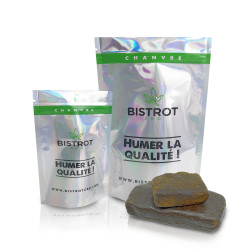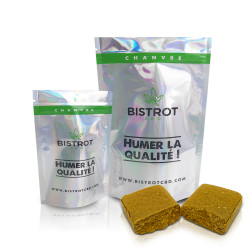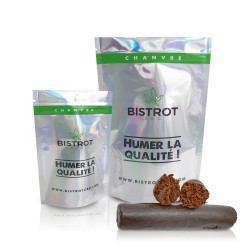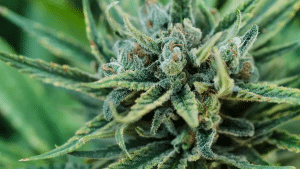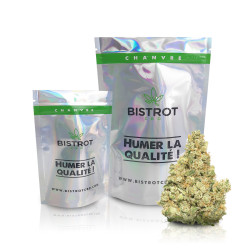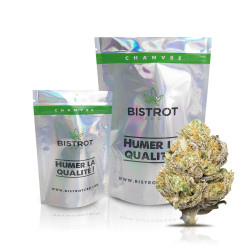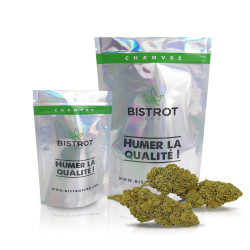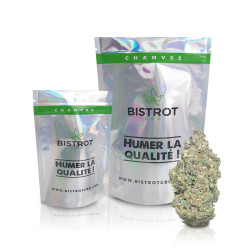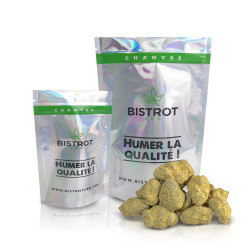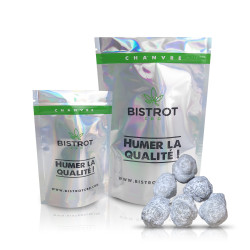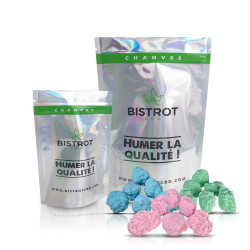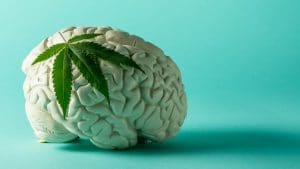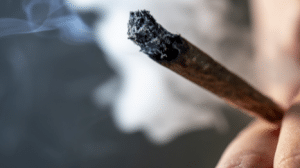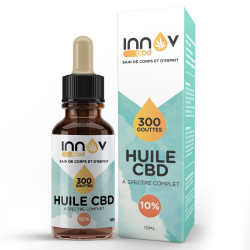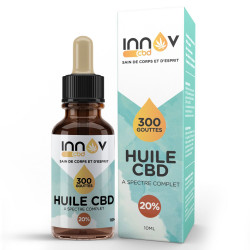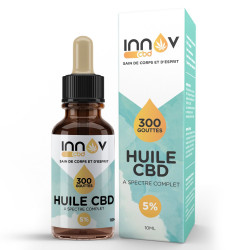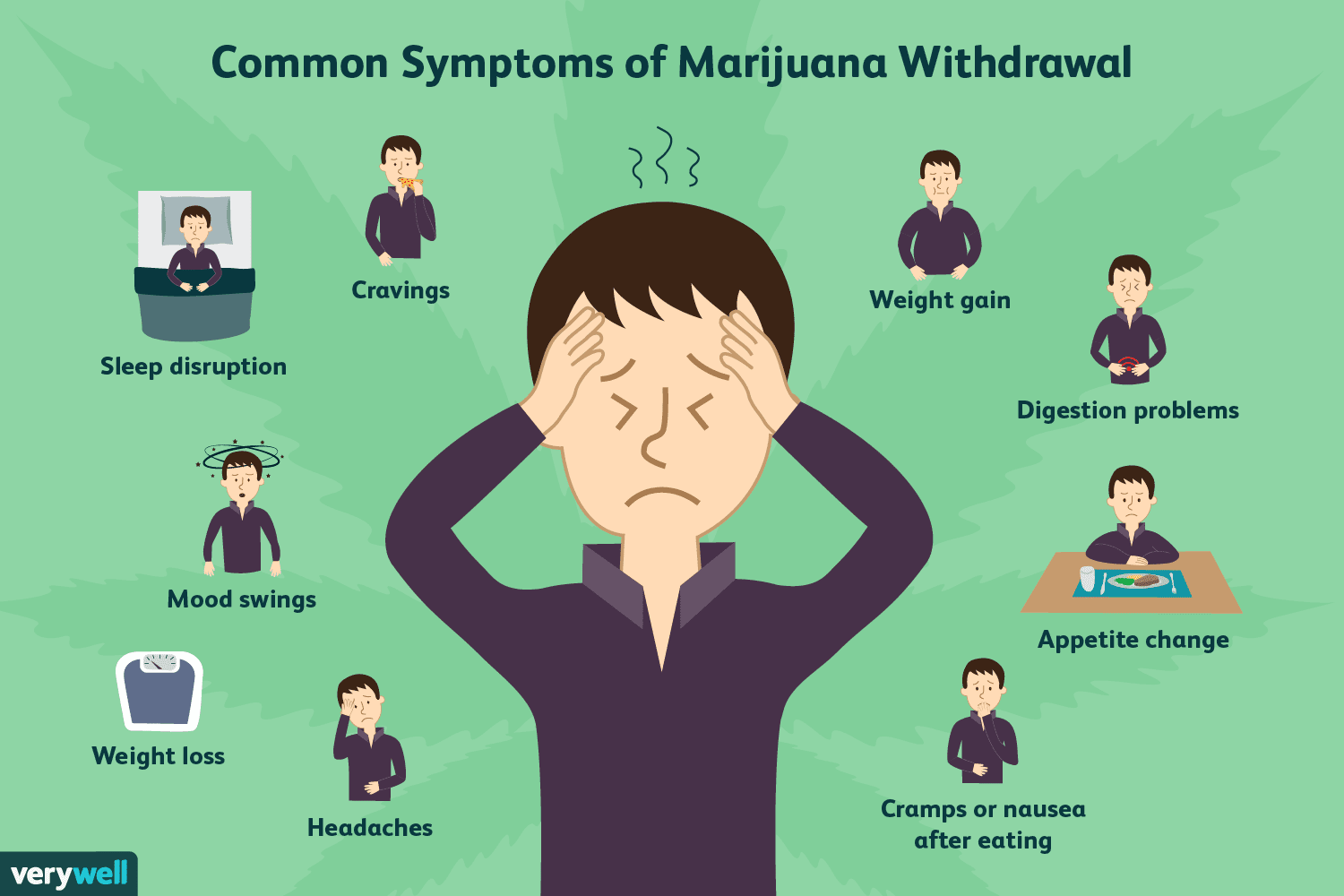
In recent years, CBD (cannabidiol) products have been found behind the windows of many stores. However, we still hear a bit of everything and anything about CBD. Indeed, with the
prohibition of cannabis in France
scientific studies on its therapeutic and secondary effects and its actions on the endocanabinoid system are gradually abandoned. They appear to be too complicated to implement legally. Despite this, cannabis is still very much alive and kicking in France and around the world. If its users were at first considered as marginal, it was necessary to admit, with the increase of the kind and the number of consumers, that beneficial effects could also be at the origin of its popularity. Today, some American states (California, Colorado, …) and European countries (Netherlands, Germany, …) legalize the use of therapeutic cannabis.
In France, the real problematic substance that led to the banning of hemp is THC (tetrahydrocannabinol). If the cannabidiol molecule (CBD), is tolerated despite its origin, it must however meet major legislative constraints. Therefore, its use as a therapeutic treatment cannot be stated despite numerous data and testimonies affirming its benefits. In particular, it appears that CBD would be a considerable help to the withdrawal symptoms created by cannabis withdrawal.
Brief reminders about the cannabis plant, its compounds and its legality
In France, the possession, use, sale and cultivation of cannabis are prohibited by law. On the other hand, it is necessary to note that products resulting from the hemp are marketed with the eyes of all and this, in all legality. In reality, the authorized CBD products found on the French market are devoid of THC. It is this detail that makes all the difference in the legislation regarding the sale of cannabis products.
Its origins:
A hemp plant contains, like any plant, a large number of more or less active substances, concentrated and specific to the species. The 3 main types of compounds are:
- cannabinoids
- terpenes
- flavonoids
All these molecules have their importance on the global effect induced by cannabis consumption. But, 2 of them are particularly interesting. They are also the subject of numerous scientific studies to understand their function on the CB1 and CB2 receptors of our endocannabinoid system. These are the cannabinoids CBD and THC.
Its legality:
Today, so-called “medical” cannabis is making great strides thanks to research and testimonials from CBD users. Its use in France is still prohibited if the THC content of a product exceeds 0.2%. THC is indeed a psychoactive substance known to cause dependence, anxiety and even paranoia to its user. In spite of confirmed positive properties, the addiction and the sometimes irreversible disorders which it involves classify it, according to the Order of February 22, 1990, among the list of the narcotics (1).
According to the French Observatory of Drugs and Drug Addiction (OFDT):
- “Cannabis is by far the most consumed illicit substance in France. In 2017, 44.8% of adults aged 18 to 64 years reported having ever used cannabis in their lifetime…” (2).
Indeed, whatever the type of consumer (regular or occasional) and the reasons for its use (recreational, addictive, therapeutic, …), cannabis is everywhere! The real problem is with regular pot smokers. Indeed, withdrawal is more difficult than one might think. Moreover, the damage on the nervous system can be important (loss of memory, anxiety, decrease of energy, psychological dependence, …).
Cannabis withdrawal and CBD
When we talk about cannabis withdrawal, we are really talking about its psychotropic molecule, THC. If unlike nicotine in tobacco, THC does not cause physical addiction, for regular pot smokers, there is a real psychological dependence to hemp.
This dependence can be due to several factors. Their importance is more or less high, but they can overlap. As a result, they make it even more difficult to wean off:
- the THC concentration of the herb variety and therefore the tolerance of a certain dose
- the taste and smell produced by the smoke of the dried flowers that are consumed
- the ritual of “rolling” and eating the joint
- the gesture specific to all smokers (tobacco, cannabis)
The use of CBD as a cannabic withdrawal but, for how long?
Once these factors are taken into account, stopping cannabis will be more or less difficult depending on the reasons for its use. In particular, it may lead to one or more withdrawal syndromes (variable intensity) relative to each user and perceptible from the first day. The intensity of this withdrawal peaks between days 2 and 6 (3):
- irritability, mood swings
- anxiety, stress, nervousness
- sleep disorders
- decreased appetite and weight loss
- depression
- physical symptoms (rarer): tremors, headaches, hyper-sudation
Sometimes these withdrawal syndromes become too invasive. The individual may then be tempted to resume cannabis use to stop the “withdrawal symptoms. As with the cessation of all addictions (alcohol, tobacco, medication, drugs), withdrawal can succeed or fail depending on the motivation, the degree of dependence and the outside help provided. CBD (cannabidiol) is proving to be a rather effective hand in cannabis withdrawal.
CBD and its use in cannabis withdrawal
Smoking, in general, is harmful. Cannabis smokers are truly putting their health at risk. In addition to the carcinogenic substances absorbed by combustion, the use of cannabis causes disorders in the normal functioning of the brain. Smoking marijuana often leads to the effects of :
- high, stoned, ripped and other literally not very glorious adjectives.
These terms are justifiable: we don’t get “high” for nothing! We are really “smashing” our brains.
Starting hemp withdrawal as a voluntary act is already a good start because motivation is essential. If sometimes this will is enough, it is sometimes useful to get help from those around you, from professionals or from a treatment.
Unfortunately, there are no truly effective medications to prevent this withdrawal syndrome. However, a CBD product (flowers, leaves, oil, resin) is increasingly used by THC cannabis users as a substitute, thus playing a placebo role. But, in reality, it’s not so much!
L’
CBD oil
to stop smoking
Instead of their usual weed, cannabis smokers are rolling flowers of hemp varieties low in THC. These flowers have organoleptic qualities and relaxing effects almost similar to the amazing varieties. As a result, the illicit cannabis consumer finds himself in a world he knows well, but legal and with less psychotropic effects. If this method of withdrawal is not the “safest” in terms of health risks because of the combustion of marijuana flowers in the joint, it is already a first step to facilitate the withdrawal.
The use of a vaporizer (CBD cannabis flowers or oil) or an electronic cigarette (CBD liquid) will be more appropriate if the user is already comfortable with these types of absorption. Otherwise, they may be the next step in psychological withdrawal.
Finally, the ingestion of hemp oil or capsules to stop the smoker’s habit is an effective and relevant method. Thus, the consumer can retain all the relaxing benefits of cannabidiol without putting his health at risk. Ingestion could be the last step before complete withdrawal (active substance and smoker’s gestures).
In conclusion…
If cannabidiol is not a miracle substance to stop cannabis consumption overnight, it can however be of great help. It allows to better support the psychological “withdrawal effects” often felt. Indeed, only THC is absent in the joint, everything else is there! The relaxing benefits of CBD without the psychotropic effects also reduce the anxiety caused by THC addiction.
Scientific studies also refer to other virtues of CBD regarding cannabis withdrawal. This molecule would relieve the symptoms of withdrawal (appetite regulation, stimulation of serotonin, …), which facilitates recovery. Anyway, just by its looks, organoleptic properties (taste, smell) and legal active compounds, a flower variety of CBD marijuana is quite a sight!
FAQ : CBD and cannabis withdrawal
[sp_easyaccordion id=”10620″]
References:
- Order of February 22, 1990 establishing the list of substances classified as narcotics: https://www.legifrance.gouv.fr/loda/id/JORFTEXT000000533085/2020-10-09/
- Thematic synthesis: cannabis according to the OFDT, August 2020: https://www.ofdt.fr/produits-et-addictions/de-z/cannabis/
- François Rousseau, Frédéric Boulanger. Withdrawal in Cannabis addiction: assessment, risks and care modalities. Life Sciences [q-bio]. 2017: https: //hal.univ-lorraine.fr/hal-01931925/document
